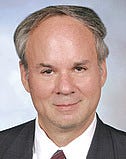FDA, Industry Mull Changes for the Agency
May 1, 2009
NEWS TRENDS
|
Jeffrey Gibbs from Hyman, Phelps & McNamara says that a split itself could cause a host of distractions within the agency. |
Does new blood at FDA's helm increase the odds of a dramatic makeover for the agency? Drug industry advocates hope so. They are quietly pushing for FDA to split into two distinct groups: one that evaluates food safety and one that evaluates medical products. The idea is that an agency wholly dedicated to medical devices, drugs, and biologics would result in faster approval times. Several factors could be drivers of change for the agency.
The first is leadership. Former New York City health commissioner Margaret Hamburg has been tapped to lead the troubled agency. Hamburg, a safety and security expert, is awaiting confirmation. Baltimore health commissioner Joshua Sharfstein has been chosen as her deputy. He is currently acting commissioner of FDA.
In an internal memo dated April 6, acting chief Sharfstein asked FDA's staff for some “short-term ideas” to help improve the agency. He indicated that he'd like to share the ideas with the new commissioner (expected to be Hamburg). In the memo, obtained by Bloomberg, Sharfstein says he is looking for ideas “that can be acted upon quickly and signal the right direction for the agency over time.” These ideas could include “proposals for new regulatory policy, external messages, internal programs, or innovative collaborations with other agencies, industry, or patient and consumer groups,” according to the memo.
Another factor is recalls, which have become the agency's signature problem. Recent food and device recalls have spurred a number of changes and have prompted industry critics to ask for even more. President Obama is establishing a new food-safety advisory group, in part because he says that too many agencies are responsible for food safety. His comments suggested that organizational changes are needed.
The agency has endured many public scoldings over recalls and dubious device approvals, and FDA knows that change must come. “We all agree that we need to start reforming the system now and we are all committed to working together toward that end,” says Siobhan DeLancey, an FDA spokesperson. “We are not yet in a position to make specific proposals or legislative recommendations but we are gathering the information we need to make critical changes now.”
Splitting the agency isn't a new idea. In fact, the Government Accountability Office supported the concept 10 years ago. But subsequent bills drafted in Congress to bring the idea to fruition never passed.
Medical device manufacturers could benefit from a split, Jeffrey Gibbs says, if “one assumes that a more-focused agency that is concentrating on healthcare products is better for industry.” He is an attorney at Hyman, Phelps & McNamara (Washington, DC). However, there are several problems to overcome—one being the agency's well-documented struggles for resources to carry out its mission. A major organizational shift wouldn't come without repercussions either.
“If there were a change so that foods were removed from FDA, or there was a major shakeup, just the shakeup itself can affect the ability of the commissioner's office to pay attention to devices,” Gibbs says. “If they're working on major reorganization relating to foods, it probably means even less oversight on the device side.”
In addition, separation only seems viable if there is a difference in the way that the agency operates or the laws that are enforced. Reorganization itself is not a fundamental driver of change, Gibbs says.
“[Thinking that] reorganizing FDA or combining with the USDA would have some kind of magical, curative effect is simplistic.”
Copyright ©2009 Medical Device & Diagnostic Industry
About the Author(s)
You May Also Like


.png?width=300&auto=webp&quality=80&disable=upscale)
